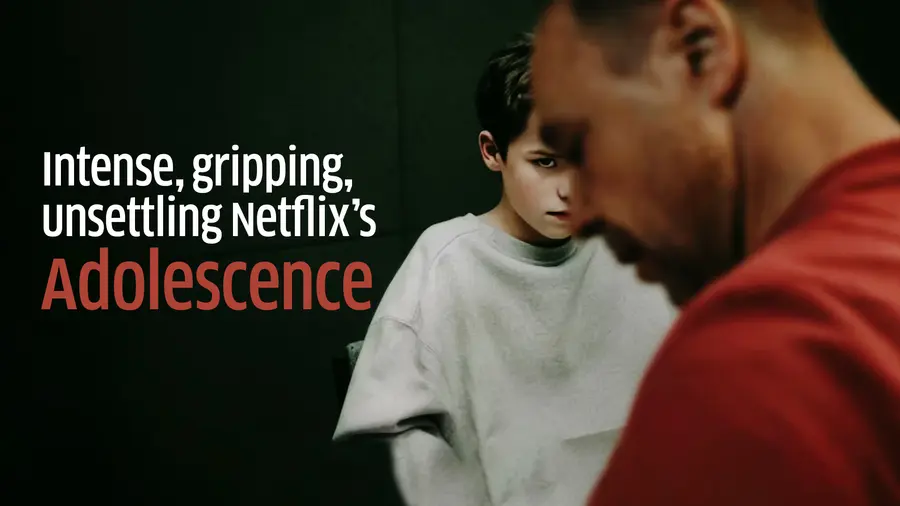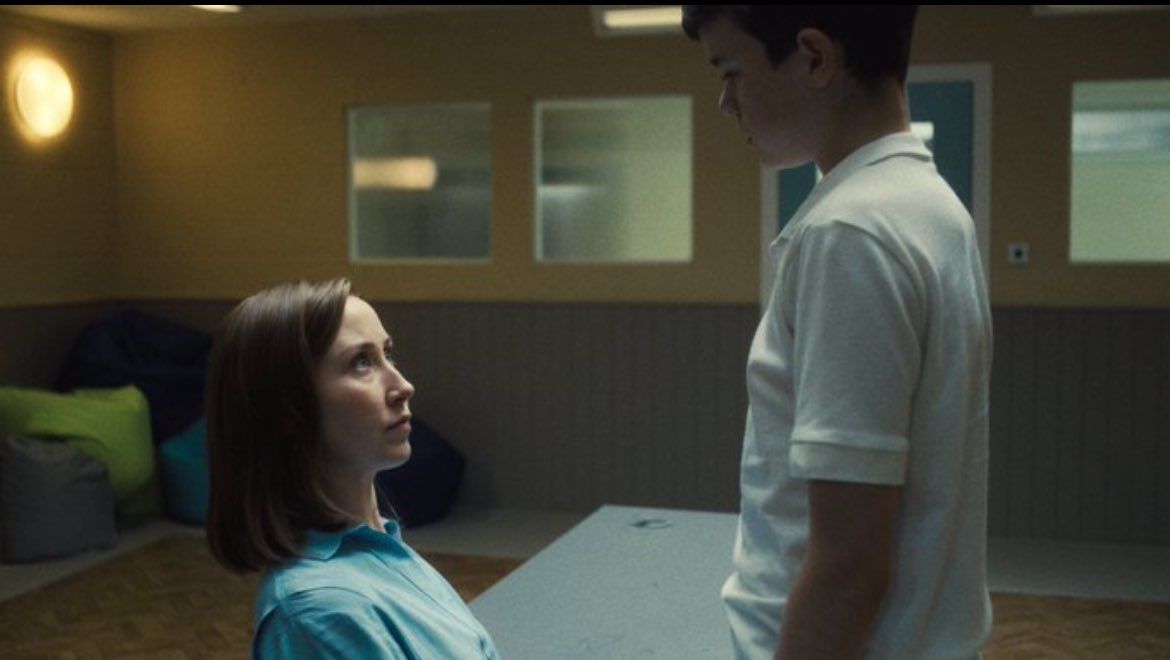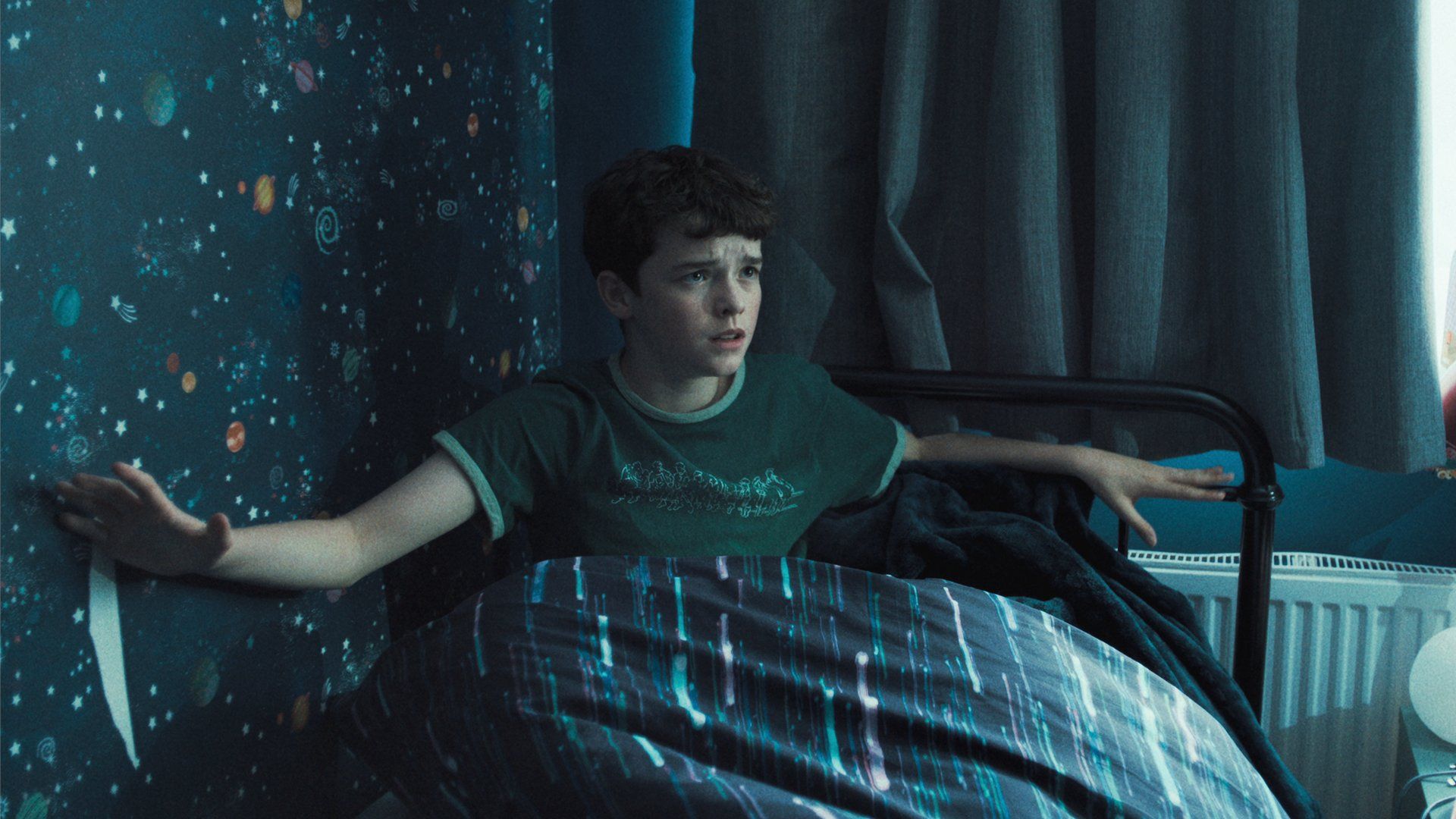When the Internet Raises Our Children: The Chilling Reality of Netflix's Adolescence


Anjali Ganga
Published on Mar 25, 2025, 12:16 PM | 5 min read
(Spoilers Ahead)
In today's fast-paced world, securing a place in society feels increasingly challenging. The widening generational gap and its impact on both present and future generations demand deeper analysis. Adolescence, a British crime drama on Netflix, explores these issues, shedding light on the growing internet subculture and the rise of misogynistic ideologies among young people.
Set in a fictional Northern England town, the four -episode mini-series follows the Miller family and opens with a dramatic police raid. Officers search every corner of the household before arresting 13 -year-old Jamie Miller (played by Owen Cooper), the prime suspect in a shocking crime. Initially, Jamie appears terrified and bewildered, wetting himself and pleading innocence. His distress elicits sympathy from both the audience and his family, who are completely unaware of the situation and the complexities of the police system.
As the investigation unfolds, CCTV footage reveals a chilling truth about the murder of Katie Leonard. The crime takes on a far more sinister tone, exposing the dark underbelly of the incel subculture (Involuntary Celibates) and the dangerous influence of masochist online communities. Adolescence masterfully explores these unsettling themes, offering a gripping and thought -provoking narrative.
The second episode shifts focus to the school investigation, where authorities analyse Jamie and Katie’s online interactions. A seemingly harmless exchange of emojis on Jamie’s post, Red Pill, 100%, Kidney Beans, and Firecracker, takes on an entirely different meaning when viewed through the lens of incel ideology. This revelation underscores the growing influence of extreme masculinity and the rise of the 'manosphere' among younger generations. The infamous Andrew Tate receives a critical nod in the series, reinforcing its message about the internet’s role in shaping toxic beliefs.
Unlike conventional crime dramas that attribute criminal behaviour to childhood trauma or dysfunctional families, Adolescence challenges these stereotypes. It moves beyond the overused trope of a murderer being "created' due to societal neglect and instead highlights how seemingly well-adjusted children can be drawn into dangerous online spaces.
 Erin Doherty stars as forensic psychologist Briony in Adolescence
Erin Doherty stars as forensic psychologist Briony in Adolescence
The third episode delves deeper into adolescence, internet culture, and the rise of masochism. Erin Doherty portrays Briony Ariston, a psychologist unravelling the details leading to Katie’s murder. During an intense session, Jamie confesses that the catalyst was a topless photo of Katie that circulated among students on Snapchat. Believing this incident had weakened her, Jamie assumed she would be more approachable. However, when he asked her out and she rejected him, he was humiliated and became the target of online bullying.
Throughout the interview, Jamie’s mood fluctuates wildly, shifting between friendly, paranoid, aggressive, and threatening. He experiences furious outbursts, makes an accidental confession, and displays learned entitlement and pent-up anger. His volatility leaves Briony severely shaken, prompting her to end the session.
 Stephen Graham in Adolescence
Stephen Graham in Adolescence
By the final episode, Jamie’s mother, Manda Miller (played by Christine Tremarco), is shattered by the revelation of her son’s actions. In a moment of raw emotion, she turns to her husband, Eddie Miller (Stephen Graham), and asks the haunting questions: such as How did this happen? How can 13 year old boy can kill? Both parents struggle to comprehend how their son, raised in a loving home, became entangled in such a dark ideology. They come to a sobering realisation, they provided everything they believed was best for him yet remained unaware of the dangerous digital world lurking behind a tiny desktop screen or mobile phone.
With its gripping storytelling and deep social commentary, Adolescence forces viewers to confront uncomfortable truths about online radicalisation and the hidden lives of teenagers in the digital age. Director Philip Barantini shot all four episodes in a single take, making the viewing experience even more immersive. The series originated from an idea by Stephen Graham, who later developed it with Jack Thorne. Graham, who also co-created and starred in the show, described Adolescence as a "why" rather than a "who done it," focusing on the societal and psychological factors that influence young minds. Concerned about rising youth violence, he emphasized the importance of addressing social media’s impact, modern parenting challenges, and unchecked male rage.
 Owen Cooper as Jamie Miller
Owen Cooper as Jamie Miller
The series raises an urgent question: Who should control what happens on the internet, the government, parents, schools, or someone else entirely? How can a boy living in a room with constellation-patterned wallpaper commit a gruesome crime? It highlights how the generational gap leads to a lack of understanding between adults and young people, where anger and insecurity often take precedence over emotional balance. The idea of men harbouring hatred toward women and developing warped perspectives on the world is difficult to digest.
The performances in Adolescence are exemplary, with every actor delivering a compelling portrayal. The series has sparked discussions about technology and social media’s role in shaping adolescent behaviour, emphasising the need for parental awareness and involvement in their children’s digital lives. Interestingly, the series resonated deeply with audiences worldwide, particularly in India, where it ignited conversations about parenting and societal norms. Graham was surprised by its success there, noting how it struck a nerve far beyond its intended local context.










0 comments